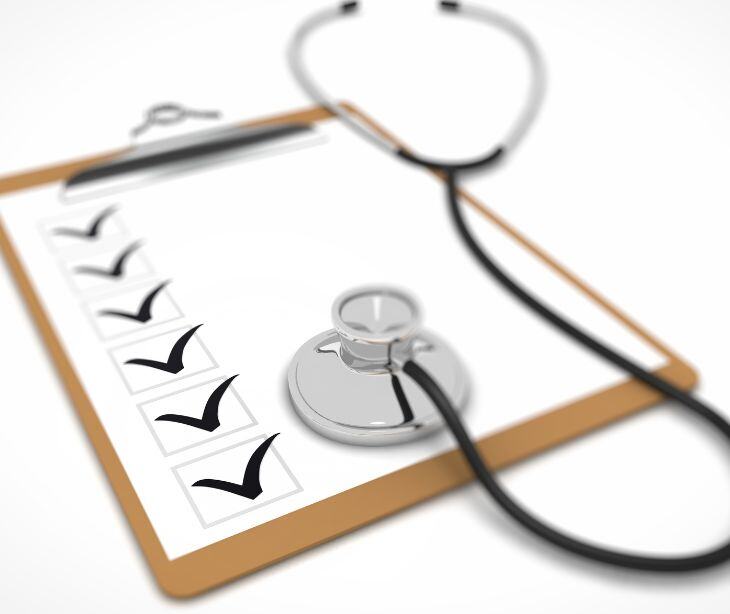
A study titled HIPAA Compliance: An Institutional Theory Perspective HIPAA Compliance: An Institutional Theory Perspective states, “Although industry surveys conducted post enforcement dates of HIPAA rules suggest a low level of full compliance among US hospitals, industry experts agree that adhering to the HIPAA Privacy and Security rules are more than just about compliance, they make sound business sense”
Healthcare organizations face a challenge in ensuring compliance with the Health Insurance Portability and Accountability Act (HIPAA) regulations. These rules, designed to protect the privacy and security of patient health information, can be complex and confusing for even the most seasoned professionals. However, maintaining HIPAA compliance is not only a legal obligation but also a step in safeguarding the trust and well-being of patients.
Establishing HIPAA compliance policies and procedures
The foundation of HIPAA compliance lies in the development of policies and procedures that govern the handling of protected health information (PHI) within your organization. These guidelines must address the core tenets of the HIPAA privacy rule, including permissible uses and disclosures of PHI, the minimum necessary standard, and patients' rights.
However, a modern HIPAA compliance program goes beyond these basic requirements. Covered entities must ensure that their policies and procedures also encompass how to effectively explain PHI to patients, verify individuals' identities, and document requests for privacy protections.
Read also: How to develop HIPAA compliance policies and procedures
Designating HIPAA compliance officers
The success of a HIPAA compliance program hinges on the clear delineation of roles and responsibilities for personnel. The HHS Office of Inspector General has indicated the need to appoint both a HIPAA privacy officer and a HIPAA security officer to oversee the various aspects of compliance.
The HIPAA privacy officer typically serves as the primary point of contact for both the public and the workforce, addressing privacy-related concerns and investigating potential violations. In contrast, the HIPAA security officer is primarily responsible for conducting risk assessments, ensuring the proper configuration of security solutions, and training the workforce on secure practices.
Read more: What do HIPAA compliance officers do?
Crafting effective HIPAA compliance training programs
The effectiveness of HIPAA compliance training programs can make the difference between merely checking the box and cultivating a genuine culture of compliance within your organization. To achieve the latter, members of the workforce must understand the fundamental concepts of PHI, the importance of protecting it, and the consequences of HIPAA violations.
See also: How to train healthcare staff on HIPAA compliance
Establishing effective communication channels
Cultivating a culture of HIPAA compliance requires a two-way communication flow, where policies and training initiatives emanate from the top-down, and feedback, concerns, and new challenges are channeled from the frontline workforce to the compliance team
To achieve this, it can be beneficial to assemble a compliance team that not only comprises legal and IT experts but also includes individuals with practical, on-the-ground experience in various departments. This diverse composition can help the compliance team better understand the nuances and challenges faced by different teams, ultimately leading to more effective and pragmatic solutions.
See more: The 3 pillars of an effective multichannel strategy
Monitoring compliance at all levels
Maintaining HIPAA compliance is an ongoing process that requires vigilance at all levels of the organization. While it is necessary to have a dedicated compliance team monitoring activities at the frontline, it is equally important to ensure that managers and senior-level executives do not fall into the trap of complacency or shortcuts.
Poor compliance practices often arise from well-intentioned but misguided attempts to "get the job done" or provide exceptional service to patients and their families. When these minor violations are left unchecked, they can quickly escalate into a broader culture of non-compliance. By identifying and addressing poor practices at the earliest opportunity, healthcare organizations can nip these issues in the bud and prevent them from becoming deeply rooted.
Crafting effective HIPAA compliance sanctions
Sanctions policies for HIPAA non-compliance can often be overwhelming, threatening a wide range of disciplinary actions, from warnings to termination of employment and even criminal penalties. While these sanctions may be necessary from a legal standpoint, making them the sole focus of attention is not the most effective way to cultivate a culture of compliance.
Instead, healthcare organizations should consider alternative approaches that stress positive reinforcement and continuous improvement. For instance, the threat of additional training, particularly if it involves entire teams, can be a powerful tool in driving compliance. Organizations can foster a more collaborative and constructive environment by positioning training as an opportunity for growth and development rather than a punitive measure.
Related: Crafting an effective sanction policy for HIPAA compliance
Responding promptly to compliance concerns
One factor in maintaining a culture of HIPAA compliance is the timeliness and responsiveness of the organization's reaction to queries, issues, complaints, and reports of violations or data breaches.
Prompt and attentive responses demonstrate a genuine commitment to compliance and a willingness to address concerns swiftly. While the primary responsibility for responding to such communications often falls on the compliance officers or teams, managers and senior-level executives may also need to take an active role in monitoring compliance and addressing workforce or patient inquiries.
Leveraging HIPAA compliance software
While the fundamental elements outlined in this guide provide a framework for HIPAA compliance, the task of implementing and maintaining these practices can be daunting for many healthcare organizations. Fortunately, the rise of specialized HIPAA compliance software has enabled a more streamlined and automated approach to this aspect of healthcare operations.
These software solutions are designed to incorporate the elements, simplifying and automating various compliance processes. From policy and procedure management to risk assessment and mitigation, HIPAA compliance software can help organizations stay ahead of the curve, ensuring that their data protection practices remain up-to-date and compliant with the latest regulations.
Paubox’s tip: Email compliance
HIPAA establishes guidelines and rules for the secure transmission of PHI, including via email communication. HIPAA email compliance aims to balance the requirement for effective communication with safeguarding patient privacy and data security.
Paubox’s HIPAA compliant email service delivers encryption on 100% of emails that go out—even if the recipient’s provider doesn’t support encryption.
Paubox Email Suite enables HIPAA compliant email by default and automatically encrypts every outbound message. This means you don’t have to spend time deciding which emails to encrypt, and your patients can conveniently receive your messages right in their inbox—no additional passwords or portals necessary.
Learn more: HIPAA Compliant Email: The Definitive Guide
In the news
On April 5, 2024, members of the US Congress provided the draft of the bipartisan, bicameral American Privacy Rights Act (APRA). This legislation is set to establish a national data privacy and security standard, allowing individuals the right to control their personal information.
The APRA and the Health Data Use and Privacy Commission Act introduced by Senators Baldwin and Cassidy both try to modernize health privacy laws. In this regard, the ARPA addresses the limitations and gaps present in the existing HIPAA. The APRA sets out to establish detailed national data privacy and security standards, extending protections beyond those covered by HIPAA.
This is particularly necessary for health information management changes with the entry of technology companies into the healthcare space. Healthcare organizations are set to handle an expanding scope of health-related data that HIPAA does not currently cover.
Go deeper: Congress unveils American Privacy Rights Act to set national data standards
FAQs
What is HIPAA?
The Health Insurance Portability and Accountability Act (HIPAA) sets national standards for protecting the privacy and security of certain health information, known as protected health information (PHI).
HIPAA is designed to protect the privacy and security of individuals’ health information and to ensure that healthcare providers and insurers can securely exchange electronic health information. Violations of HIPAA can result in big fines and penalties for covered entities.
Who does HIPAA apply to?
HIPAA applies to covered entities, which include healthcare providers, health plans, and healthcare clearinghouses. It also applies to business associates of these covered entities. These are entities that perform certain functions or activities on behalf of the covered entity.
Do I need patient consent to share protected health information (PHI) with other entities?
In most cases, covered entities can share PHI without patient consent for treatment, payment, and healthcare operations. However, there are exceptions and limitations, and reviewing the specific requirements outlined in the Privacy Rule is necessary.
What tools can I use to ensure HIPAA compliance?
There are various tools available to assist with HIPAA compliance, including HIPAA compliance software, secure email solutions, encryption technologies, and training programs. Choose tools that align with your organization's specific needs and requirements.
Subscribe to Paubox Weekly
Every Friday we'll bring you the most important news from Paubox. Our aim is to make you smarter, faster.




